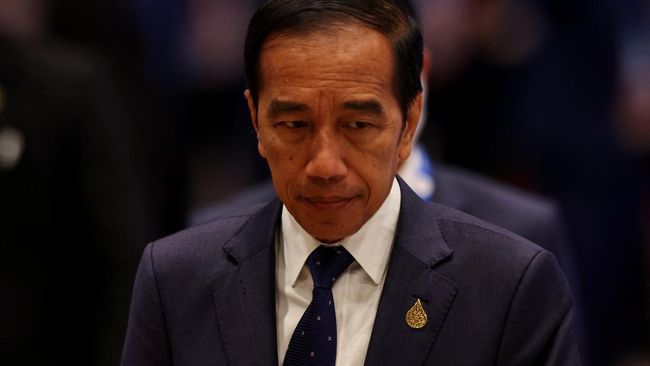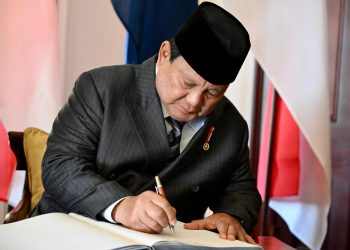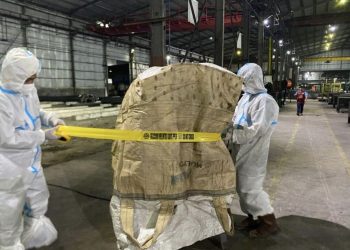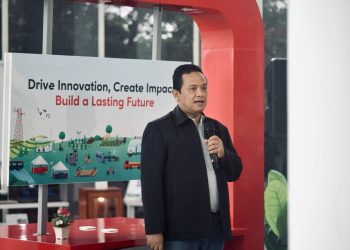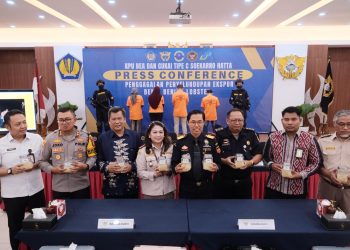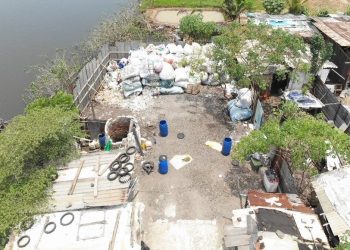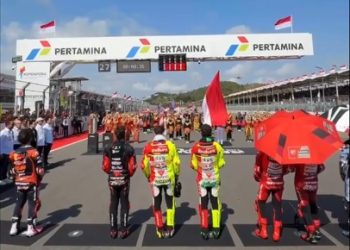Jakarta, Indonesia Sentinel — The Organized Crime and Corruption Reporting Project (OCCRP) has named four world leaders as finalists for its “Most Corrupt Leader” designation in 2024. Among them is Indonesia’s seventh president, Joko Widodo also known as Jokowi. The nomination has sparked widespread debate, with Jokowi OCCRP providing explanations on how these leaders were shortlisted.
Selection Process and Public Involvement
OCCRP stated that nominations for this designation were crowd-sourced globally, receiving over 55,000 suggestions. The final list was determined by a jury of civil society members, academics, and journalists experienced in corruption investigations. OCCRP emphasized its independence, claiming it had no control over the individuals nominated, as the selection was influenced by online votes and public submissions.
“The finalists were chosen based on strong public support online and a reasonable basis for their inclusion in the final nominations,” said OCCRP in its official statement.
Despite the controversy surrounding Jokowi’s inclusion, OCCRP admitted it lacked concrete evidence to prove personal corruption during his presidency. Instead, his nomination was fueled by strong online campaigns and criticism of his administration’s perceived weakening of Indonesia’s anti-corruption body, the Corruption Eradication Commission (KPK).
Criticism and Allegations
OCCRP acknowledged that Jokowi’s government had faced significant criticism from civil society and experts for undermining anti-corruption mechanisms in Indonesia. Critics argue that his administration’s actions have eroded the independence and effectiveness of the KPK, which was once seen as one of the most robust anti-corruption bodies in the world.
Additionally, accusations of manipulating Indonesia’s electoral and judicial systems to support his son’s political ambitions added to the perception of corruption. Jokowi’s son, Gibran Rakabuming Raka, was recently inaugurated as vice president under President Prabowo Subianto.
While the allegations against Jokowi lack definitive evidence of personal financial gain, the OCCRP jury considered the strong public perception of corruption as a significant factor in his inclusion.
OCCRP’s Perspective
Drew Sullivan, OCCRP’s publisher, acknowledged the limitations of the organization’s investigation but defended the nomination process as a reflection of public sentiment.
“In some cases, there is insufficient evidence of significant corruption or longstanding abuse. However, the public’s perception is a powerful indicator that corruption is being noticed and criticized,” Sullivan explained.
He added that the nominations were not intended to serve political agendas but rather to highlight issues of governance and accountability.
Jokowi’s OCCRP Response
Joko Widodo has strongly denied the allegations, dismissing them as baseless and politically motivated. Speaking to reporters in Solo, Central Java, on December 31, 2024, he questioned the validity of the accusations.
“Most corrupt? Corrupt in what way? What evidence is there?” Jokowi said, calling on accusers to substantiate their claims.
He expressed frustration with what he described as rampant misinformation and malicious framing.
“There are so many lies, so much evil framing, so many baseless accusations. That’s what’s happening now,” Jokowi remarked.
When asked whether he believed the nomination had political undertones, Jokowi laughed and suggested that such accusations could be weaponized by anyone with access to various platforms, including NGOs and political parties.
“Ask them. People can use any vehicle they want, whether it’s NGOs or political parties,” he said.
Jokowi Listed in OCCRP Corrupt Person of the Years Finalist
A Polarizing Debate
The OCCRP’s announcement has ignited debates in Indonesia and beyond. Supporters of Jokowi argue that the nomination is unfair and politically driven, citing his significant achievements in infrastructure development and economic reform. Critics, however, point to his administration’s controversial policies and their impact on democratic institutions.
The inclusion of world leaders in such a list highlights the growing role of public perception in holding officials accountable. While OCCRP admits its methodology may not always provide definitive proof, it underscores the importance of public scrutiny and the need for transparency in governance.
As OCCRP continues to refine its nomination and selection process, its role in global accountability remains a subject of intense discussion.
(Becky)


